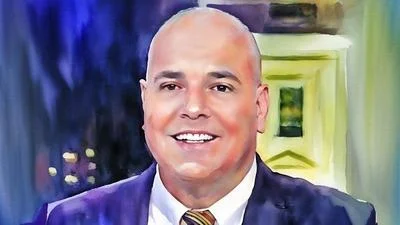Fred de Fossard brings a unique blend of historical scholarship and political experience to his work. A former chef turned historian, he studied at Magdalen College, Oxford, and later served as Special Adviser to Sir Jacob Rees-Mogg, helping to shape regulatory and legislative policy during critical moments of Brexit.
Today, as Director of Strategy at the Prosperity Institute, he leads efforts to reignite Britain’s economic and political potential through conservative principles, legislative reform, and post-Brexit freedoms.
At its core, the Prosperity Institute is about revitalizing British governance and economic liberty. “We are... right-of-center. We have a mixture of economic, regulatory, constitutional, [and] immigration policy,” de Fossard says. “What motivates us is: what are the great burning existential civilizational problems facing Britain… and how do we solve it?”
A top concern was Britain’s pre-Brexit arrangements with the European Union. According to de Fossard, Britain’s decision to leave the economic arrangement in 2016 was not a surprise.
“This was a very long time coming,” he says. He believes that Brexit sentiment dates to the 1990s on the right and even earlier on the left, rooted in concerns about British sovereignty. “We were surrendering lawmaking ability to a foreign body—that's ultimately the core of it.”
De Fossard draws a sharp contrast between the UK’s common law tradition and the EU’s top-down legal structure. “We have this unique English innovation of the common law... a much more bottom-up, precedent-based approach to law,” he says.
By contrast, the EU, particularly under French influence, favors “very top down, very process heavy” harmonization over mutual recognition, which he says stifles innovation and efficiency.
On regulation, de Fossard points to the olive oil controversy as a symbol of EU overreach. “It shows you the EU philosophy, which is... process-based regulation—you must do this, you must do this,” he says.
By comparison, he says “Britain, before we joined the European Union, preferred outcomes-based regulation.” The result? EU regulations added tremendous friction to business operations. “It damages competition,” he says. “It damages innovation.”
Post-Brexit, de Fossard concedes that progress has been uneven. “We’ve been officially out of the European Union for years... but overall we’re still kind of stuck in the same EU approach to regulation.”
While the UK has avoided sweeping new EU mandates, like the Digital Services Act and the Packaging Directive, domestic deregulation remains modest. “There are some nice micro-deregulations… it’s great that we’re diverging a little bit from GDPR, but not nearly enough,” he says.
One glaring unresolved issue is the status of Northern Ireland’s ongoing engagement with the EU under the old arrangement. “Northern Ireland hasn’t fully been extricated from the EU… and this government isn't interested in solving [it], which is a great shame.”
Still, de Fossard emphasizes that the UK’s new trade flexibility is real. “We have signed new trade deals… and Britain has joined the CPTPP,” he says, calling a potential UK-U.S. deal “an amazing prize.”
Another critical issue for Britain is large-scale immigration, one of the most consequential issues that drove Brexit, according to de Fossard. “You just couldn’t control your borders,” he says.
De Fossard explains that Britain’s membership in the EU meant anyone granted residency in any EU state could freely move to the UK, even if Britain had previously denied them a visa. “Our constitution is essentially made up of hundreds of individual documents and precedents… so we had this ability for the state to be quite authoritarian, combined with greater EU supremacy over regulatory policy.”
Immigration shifted dramatically starting in 1997, he notes, when the Labour Party “massively liberalized immigration in all forms.” The result? “Huge, huge numbers of people turned up,” including from former Soviet states. The government expected 10,000 Polish arrivals; “Turns out hundreds of thousands, possibly even millions... arrived,” he says.
De Fossard says the 2016 vote was a proxy for frustrations with unchecked immigration and bureaucratic overreach. “‘Take back control’... spoke to a rage about regulation and taxation and economic policy and sovereignty, but also a rage about lack of control over immigration.”
De Fossard believes reform on all fronts starts with rigorous questioning of regulators’ assumptions. “They said, ‘Oh, we need to do this because it’s a good thing.’” But de Fossard wants more accountability. “Are we going to return to... justify why it’s a good thing or how it’s a good thing?”









